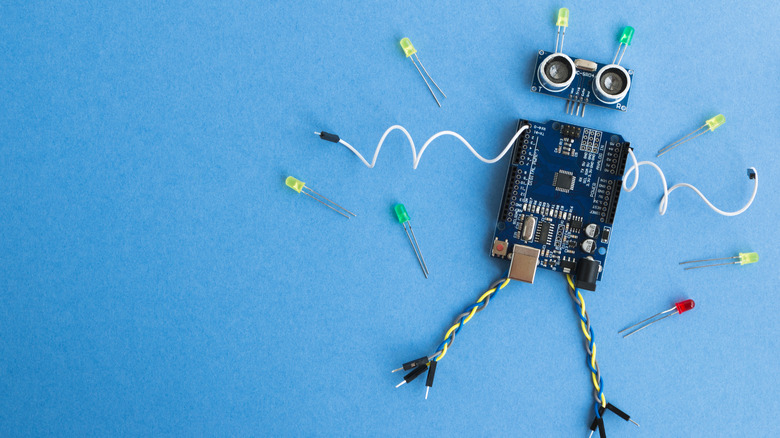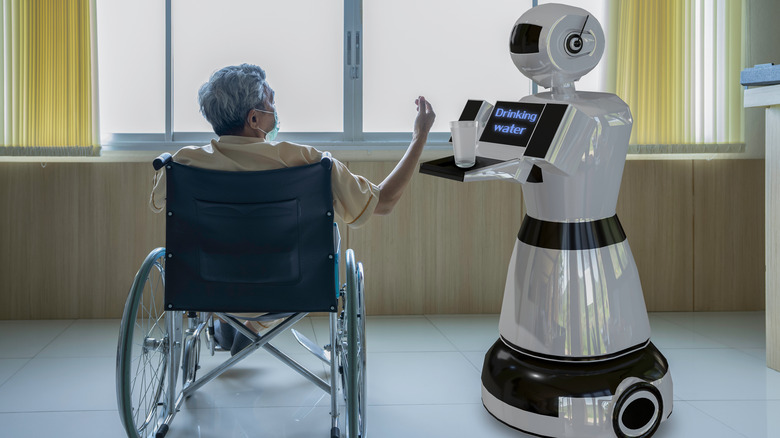The Real Reason A Bot Read Romance Novels
If you're a romance novelist, you can hang up your velvet pen and your 50 shades of provocative synonyms right now — you're being replaced. By who? Well, robots of course. We always knew it would come down to this. You would think the first-ever novel written by a robot would be a work of science fiction, but no. Too obvious. A touching drama? Nah. Too far-fetched.
But why romance and why now? At this point in time, you might already be familiar with "robot-written literature," a phenomenon that has taken the internet by storm. If not, all you really need to know is that comedians like Keaton Patti have been releasing outrageous literary works they claim are the result of forcing bots to read and/or watch television excessively (via Thrillist). And while these pieces are full of laugh-worthy gems like "We see the pasta nachos. They are warm and defeated", the sentences are just as fake as they are hilarious.
Enter Google, who decided that real robots would most likely prefer steamy romantic literature to any other alternative. Per HuffPost, Andrew Dai, a software engineer and spokesperson for Google, claims that when it comes to romance literature, "the genre's formulaic approach to storytelling makes it ideal for machine learning."
Google wants to make its robot a better conversationalist
According to Android Authority, Google had a perfectly capable robot who was articulate to a fault. Its grammar and punctuation were flawless, as one might expect from an inanimate machine. But Google didn't want an inanimate machine. Google wanted Shakespeare with a brain of gigabytes, a body of steel, and a poet's soul. In order to achieve this, they forced their bot to binge-read a jaw-dropping 2,865 romance novels.
Following this strange reading ritual, they prompted the robot with the beginnings and endings of stories and allowed it to fill in the blanks. Romance writers can breathe a sigh of relief here — what transpired was no work of literary genius. In fact, it was a very straightforward, somewhat coherent "poem." But while there might not be a future in romance writing for robots, reading these steamy passages did make Google's bot a bit more relatable and a much better conversationalist. As you can see, by taking the same approach as others but holding slightly different expectations, Google's mission turned out to be a success.

